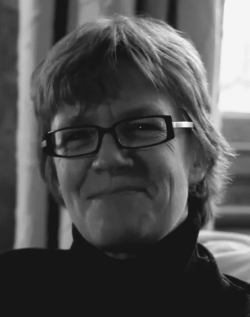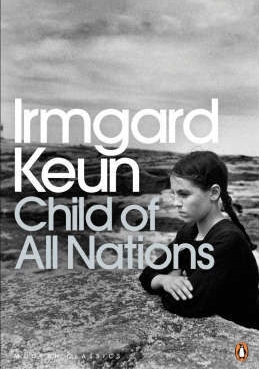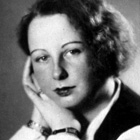I interviewed Sarah Bakewell last month about her biography of Montaigne for the new Interview of the Month slot on the Blackwell Online website (that interview will be available there very soon). Visiting her website recently I saw her post about Irmgard Keun, a writer I had never heard of.
 It turned out that Sarah had never heard of her either until she stumbled on one of her books in My Back Pages in Balham. That gave me an idea for a new series of guest posts, featuring readers on writers or books they have recently discovered.
It turned out that Sarah had never heard of her either until she stumbled on one of her books in My Back Pages in Balham. That gave me an idea for a new series of guest posts, featuring readers on writers or books they have recently discovered.
Sarah has very kindly allowed me to republish her post, the first in a series of what I am unsurprisingly going to call Discoveries. If you would like to contribute, email me at george [at] podularity.com.
 When I’m working from home there usually comes a point where I have to get up from my desk and rush out into the air, usually on the pretext of going to the supermarket or post office. But sometimes, once I get out into the street, I realize at once that I don’t need groceries and I have nothing to post.
When I’m working from home there usually comes a point where I have to get up from my desk and rush out into the air, usually on the pretext of going to the supermarket or post office. But sometimes, once I get out into the street, I realize at once that I don’t need groceries and I have nothing to post.
When this happens, I keep walking past Balham tube station until I get to the best second-hand bookshop in the neighbourhood (also one of the best in London), My Back Pages.
 I tend to come out with exactly one book, and it’s never one I had previously intended to buy. Last week it was a Penguin Classic I’d never heard of, by Irmard Keun, called Child of All Nations. I bought it because I liked the cover.
I tend to come out with exactly one book, and it’s never one I had previously intended to buy. Last week it was a Penguin Classic I’d never heard of, by Irmard Keun, called Child of All Nations. I bought it because I liked the cover.
Child of All Nations was written in 1938, and only translated into English in 2008 – by Michael Hofmann, who is best known for his translations of Joseph Roth. There’s a connection, for Irmgard Keun travelled round Europe for many years as Joseph Roth’s companion. Both were writers and bohemians, both drank too much, and both were in flight from the Nazis, who were burning their books.
The novel is the story of Kully, a young girl whose parents are doing just what Keun and Roth did. The father drifts from one European capital to the next, writing and boozing, and trying to charm or wheedle money out of people. Whenever he does get a few coins, he blows it on inviting impecunious poets and street-drinkers out for absinthe and rum. Meanwhile, Kully waits with her mother in Dutch and Belgian hotels which they cannot afford to leave, for that would mean paying the bill. She picks up languages by the half-dozen, meets children and adults, and plays with anything she happens to find, from rotting crabs to tiny balls of mercury spilled from a broken thermometer. She observes all: an eternally naïve narrator who misunderstands what is going on, but who – of course – really understands more than anyone. The adults are lost and often sad; Kully does not get it, and so she sees things as they really are.
 It’s an exquisite, moving book, beautifully written (and beautifully translated). Kully’s father is an unforgettable character: warm, impulsive, generous; intimidating when drunk, shockingly irresponsible, yet somehow reassuring. When he is around, it seems nothing can go wrong; the trouble is, he is hardly ever around. Early on, he is described as having eyes which “sometimes looked as if they had swum far out to sea and weren’t completely back yet.” And when he gives a lecture in Poland, Kully (who isn’t sure what a lecture is) pictures it as a glittering spectacle in a vast castle, attended by thousands of people. It must, she imagines, “must be something like thunder made out of diamonds.”
It’s an exquisite, moving book, beautifully written (and beautifully translated). Kully’s father is an unforgettable character: warm, impulsive, generous; intimidating when drunk, shockingly irresponsible, yet somehow reassuring. When he is around, it seems nothing can go wrong; the trouble is, he is hardly ever around. Early on, he is described as having eyes which “sometimes looked as if they had swum far out to sea and weren’t completely back yet.” And when he gives a lecture in Poland, Kully (who isn’t sure what a lecture is) pictures it as a glittering spectacle in a vast castle, attended by thousands of people. It must, she imagines, “must be something like thunder made out of diamonds.”
This book is thunder made out of diamonds too, and it takes you far out to sea. I’m glad so few of the books I find are like this, or I’d never get anything else done; I’d read and re-read them, and perhaps forget to come back.
© Sarah Bakewell 2010. For original post, see Sarah’s site here.
